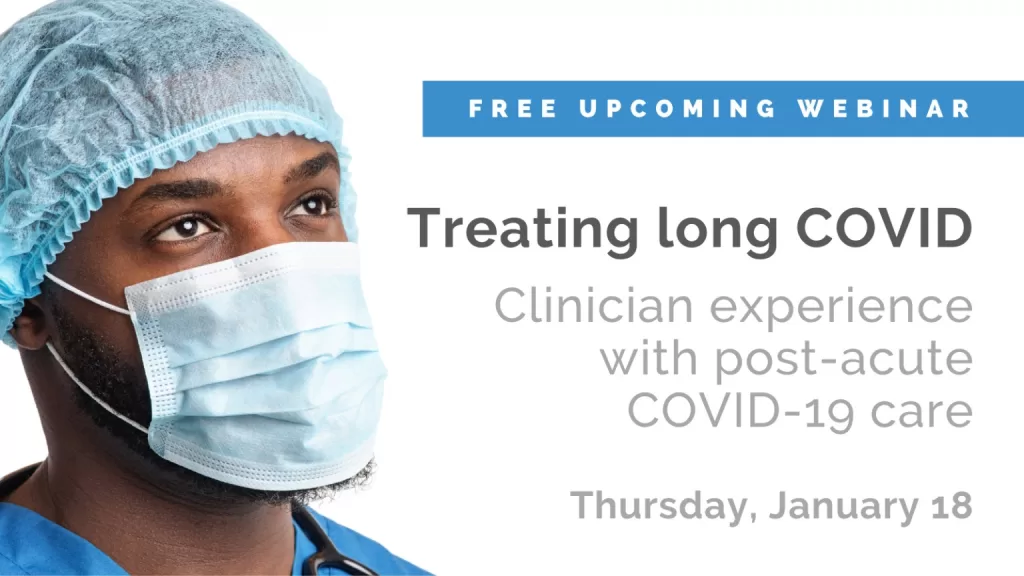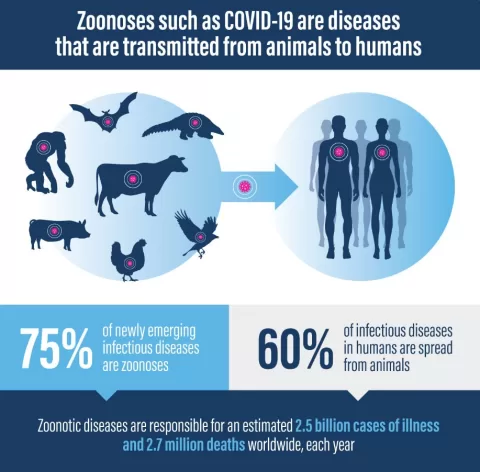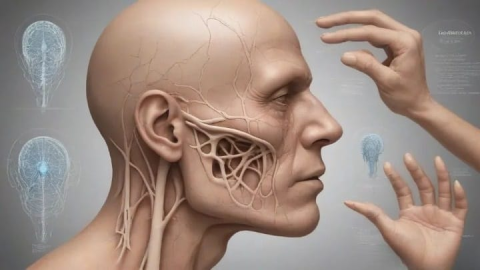Long COVID treatment has emerged as a pressing concern for many, given that an estimated 50 million Americans experience post-COVID symptoms that significantly disrupt their lives. As researchers at UVA Health launch two national clinical trials, they aim to bring hope and relief to individuals grappling with the repercussions of COVID-19. Among these trials are the RECOVER-SLEEP trial, which focuses on alleviating sleep disturbances, and the RECOVER-AUTONOMIC trial, targeting symptoms of postural orthostatic tachycardia syndrome, or POTS after COVID. With effective long COVID trials underway, there is potential for groundbreaking discoveries that could transform how we understand and manage these lingering effects. By investing in such innovative research, UVA Health is not only fostering hope but also paving the way for better patient care and recovery strategies.
The journey towards understanding and addressing the challenges associated with post-viral syndromes, particularly long COVID, has gained significant momentum. Many individuals report debilitating symptoms long after their initial COVID-19 infection, commonly referred to as long-term COVID symptoms. Ongoing investigative efforts, like the UVA Health clinical trials, are crucial for identifying suitable therapies and improvements in patient outcomes. As the medical community continues to explore the intricacies of these prolonged health issues, such initiatives represent a vital step towards restoring the health and quality of life for those affected by the aftermath of the pandemic. These clinical studies not only shed light on the complexities of post-COVID conditions but also inspire hope for those facing these life-altering challenges.
Understanding Long COVID Symptoms and Their Impact
Long COVID is a complex condition that manifests in a variety of lasting symptoms post-COVID infection. Current estimates suggest that between 5% and 30% of individuals who contracted COVID-19 may find themselves experiencing these debilitating effects. With approximately 50 million Americans potentially affected, as reported by health experts like Dr. Alexandra Kadl at UVA Health, it’s clear that understanding long COVID is crucial for effective management and treatment.
The symptoms associated with long COVID are extensive, reportedly encompassing around 200 different manifestations. Commonly reported issues include respiratory complaints such as chronic cough and breathlessness, sleep disturbances, gastrointestinal problems, and neurological symptoms including cognitive difficulties. This diversity in symptoms complicates the treatment landscape, making it vital for ongoing research like the UVA Health clinical trials to identify effective therapies.
Current Research Initiatives: UVA Health’s Role in Long COVID Trials
UVA Health is at the forefront of two national clinical trials aimed at understanding and mitigating long COVID symptoms. These trials, part of the NIH’s Researching COVID to Enhance Recovery Initiative, are essential for discovering new treatment avenues for affected patients. The RECOVER-SLEEP trial specifically targets sleep disturbances following COVID-19, enrolling individuals who face issues like hypersomnia or complex sleep disturbances.
In the RECOVER-SLEEP trial, participants have the chance to receive either new medication to help manage their hypersomnia or interventions such as light exposure therapy for those struggling with sleep quality. This trial represents a significant step in investigating tailored solutions that can provide relief from one of the many symptoms impacting individuals recovering from COVID-19.
Exploring Treatment Options for Post-COVID Symptoms
The need for effective treatment options in the realm of long COVID becomes increasingly evident as patients like those engaged in the RECOVER-AUTONOMIC trial battle severe post-COVID symptoms like postural orthostatic tachycardia syndrome (POTS). Individuals with POTS often face daily challenges like dizziness and fatigue, stemming from irregular heart function post-infection.
Researchers at UVA Health are dedicated to delving into the pathophysiology of POTS and other long COVID syndromes, indicating that understanding the underlying mechanisms could lead to effective therapies. Innovative approaches, including combination therapies and targeted interventions discussed in the trials, can potentially alter the debilitating course of long COVID for many.
Strategies for Managing Long COVID Effectively
Living with long COVID requires individuals to adapt to new lifestyle changes and manage symptoms proactively. Patients often experience a lack of understanding and support, as many of their symptoms may appear invisible to observers. Dr. Kadl emphasizes the importance of recognizing long COVID as a genuine condition that warrants compassion and appropriate medical intervention.
In the absence of quick fixes, patients are encouraged to focus on gradual lifestyle adjustments that accommodate their new reality. This might include fatigue management strategies, pacing activities, and seeking supportive therapies through clinical trials or specialized clinics like those at UVA Health.
The Importance of Clinical Trials in Long COVID Research
Clinical trials play a pivotal role in advancing our understanding of long COVID. By participating in research initiatives like those at UVA Health, patients contribute to a growing body of knowledge that aims to enhance recovery outcomes for countless individuals grappling with debilitating post-COVID symptoms. The RECOVER-SLEEP and RECOVER-AUTONOMIC trials represent critical steps toward developing new treatment options and informing clinical practice.
Moreover, by engaging in these trials, participants are aiding in the identification of effective therapies, providing hope for better management of conditions like POTS and chronic fatigue. As findings emerge from these studies, they will not only benefit participants but also countless others facing the challenges of long COVID down the road.
Challenges in Diagnosing Long COVID Conditions
Diagnosing long COVID and its associated conditions can be fraught with difficulty, partly due to the subjectivity of symptoms and the common misconception that patients are exaggerating their experiences. Dr. Kadl highlights the frustration faced by patients who appear physically healthy yet struggle with profound impacts on their daily lives.
This diagnostic challenge demands a re-evaluation of how healthcare professionals approach post-COVID symptoms. Bridging the gap between medical evidence and patient experience is critical for ensuring that individuals receive the recognition and treatment they need to cope with long COVID.
Navigating Mental Health Issues Associated with Long COVID
Mental health challenges often accompany the physical symptoms of long COVID, creating an additional layer of complexity for those affected. Anxiety, depression, and cognitive dysfunction are increasingly recognized as part of the long COVID experience for many patients.
Addressing these mental health concerns in conjunction with physical symptoms is crucial for a holistic approach to long COVID treatment. Clinical trials exploring both psychological and physical therapies could pave the way for comprehensive solutions that address the multifaceted nature of post-COVID conditions.
The Future of Long COVID Treatment and Research
Looking ahead, ongoing research at institutions like UVA Health is critical to enhancing our understanding of long COVID. As researchers continue to analyze data from clinical trials, expectations are high that they will unveil effective, evidence-based treatment protocols that cater to the diverse needs of long COVID patients.
The commitment of health professionals to dissecting long COVID and its various manifestations reflects a promising future, where patients might access targeted therapies that can restore a semblance of normalcy to their lives. Continued advocacy for research funding and patient participation in trials will be key drivers of this essential work.
How to Participate in Long COVID Clinical Trials
For those interested in seeking help and participating in clinical trials, UVA Health offers a pathway to engage with the latest research efforts. Interested individuals are encouraged to reach out to the UVA Health clinical team to determine their eligibility for enrollment in relevant trials like RECOVER-SLEEP or RECOVER-AUTONOMIC.
Participation not only contributes to collective knowledge but also opens doors for individuals to access cutting-edge therapeutic strategies. For more information, potential participants can contact the trial team via email or phone, ensuring they take an active role in their health journey.
Frequently Asked Questions
What are the latest long COVID treatment options being explored in clinical trials?
Recent long COVID treatment options include participation in national clinical trials like the RECOVER-SLEEP trial at UVA Health, which investigates treatments for sleep-related issues in COVID-19 survivors. This trial explores medications such as Solriamfetol and Modafinil for hypersomnia and light therapy alongside Melatonin for complex sleep disturbances.
How is UVA Health addressing post-COVID symptoms in their clinical trials?
UVA Health is actively addressing post-COVID symptoms through two significant national clinical trials under the NIH’s RECOVER initiative. These trials focus on specifically understanding and treating conditions like POTS after COVID, which affects heart rate regulation and causes dizziness and fatigue.
Can I participate in long COVID trials at UVA Health if I have experienced symptoms like POTS after COVID?
Yes, if you have experienced postural orthostatic tachycardia syndrome (POTS) or other long COVID symptoms, you may be eligible to participate in the RECOVER-AUTONOMIC trial at UVA Health. Interested individuals should contact the clinic for screening.
What is the RECOVER-SLEEP trial, and what does it target within long COVID treatment?
The RECOVER-SLEEP trial is focused on treating long COVID patients experiencing sleep disturbances, such as hypersomnia and complex sleep issues. It aims to evaluate the effectiveness of specific medications and light therapy to alleviate these persistent sleep problems.
What challenges do patients face when seeking long COVID treatment at facilities like UVA Health?
Patients with long COVID often face challenges in being believed and understood due to the invisible nature of their symptoms. Many report frustration that their debilitating issues, such as fatigue and respiratory problems, are dismissed as personal weaknesses, which complicates their quest for effective treatment.
What are some common long COVID symptoms that researchers at UVA Health are studying?
Researchers at UVA Health are studying a range of common long COVID symptoms, including chronic cough, shortness of breath, sleep disorders, gastrointestinal issues, and neurological symptoms. These factors significantly affect the patients’ daily lives and functioning.
How do UVA Health’s clinical trials aim to improve our understanding of long COVID?
UVA Health’s clinical trials are part of the NIH’s Researching COVID to Enhance Recovery Initiative, designed to deepen our understanding of long COVID. By investigating specific symptoms like sleep disorders and autonomic dysfunction (such as POTS), these trials aim to develop targeted treatments that enhance recovery and quality of life for affected individuals.
| Key Points | Details |
|---|---|
| Overview of Long COVID | Approximately 50 million Americans experience long COVID symptoms, impacting their daily lives. |
| UVA Health’s Initiatives | UVA Health is participating in two significant national clinical trials aimed at finding effective treatments for long COVID. |
| RECOVER-SLEEP Trial | This trial focuses on adults with various sleep disorders post-COVID, testing medications and light therapies. |
| RECOVER-AUTONOMIC Trial | This trial is for individuals experiencing postural orthostatic tachycardia syndrome (POTS) after COVID, affecting heart regulation. |
| Challenges in Diagnosis | Many patients are not taken seriously when reporting long COVID symptoms, leading to frustration and under-treatment. |
| Management of Long COVID | There is no quick fix for long COVID; lifestyle changes are often necessary for effective management. |
Summary
Long COVID treatment is a pressing health concern that affects millions of Americans grappling with ongoing symptoms post-infection. As researchers at UVA Health engage in national clinical trials, they aim to bring clarity and solutions to those suffering from this complex condition. Despite the obstacles and misconceptions surrounding long COVID, such initiatives represent hope for better management strategies and improved understanding of this chronic disease.
The content provided on this blog (e.g., symptom descriptions, health tips, or general advice) is for informational purposes only and is not a substitute for professional medical advice, diagnosis, or treatment. Always seek the guidance of your physician or other qualified healthcare provider with any questions you may have regarding a medical condition. Never disregard professional medical advice or delay seeking it because of something you have read on this website. If you believe you may have a medical emergency, call your doctor or emergency services immediately. Reliance on any information provided by this blog is solely at your own risk.






